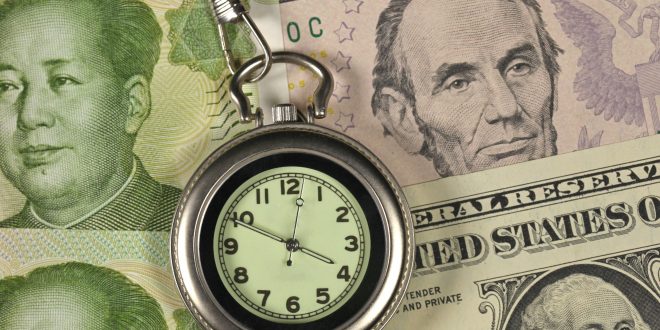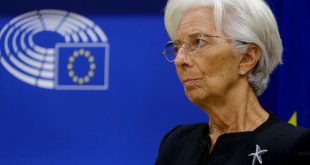The safe-haven Japanese yen weakened on Friday and risk-sensitive currencies such as the Australian dollar rose as investors took comfort from a plan for talks between the United States and Russia on the crisis in Ukraine.
The euro rose as the dollar weakened.
The yen and the Swiss franc, a rival safe haven, gained this week as investors worried about rising tensions on the Ukrainian border where Russia has deployed more than 100,000 troops. Western powers say Russia is looking for an excuse to invade, a charge Moscow rejects.
Sentiment improved after news late on Thursday that US Secretary of State Anthony Blinken had accepted an invitation to meet his Russian counterpart, Sergei Lavrov, next week.
The dollar index – which measures the performance of the US currency against a basket of major currencies – ended last week’s trading near the 96.10 level.
Gold
Gold eased slightly at levels of $1,900 an ounce Friday, February 18, as hopes in talks between the United States and Russia led to some calm in the markets. Still, continuing concerns over Ukraine kept the yellow metal on track for a third consecutive weekly gain.
Gold futures fell slightly to $1,900.8 an ounce at the close of trading and rose by about 2% this week.
It was reported that US Secretary of State Anthony Blinken accepted an invitation to meet with his Russian counterpart Sergei Lavrov next week to discuss the current situation between Russia and Ukraine.
Oil
Oil prices closed the week mixed on Friday as US crude ended eight weeks of gains as the prospect of increased Iranian oil exports outweighed fears of a possible supply disruption from the Russia-Ukraine crisis.
Brent crude futures rose 57 cents, or 0.6 percent, to $93.54 a barrel, while US West Texas Intermediate crude closed down 69 cents, or 0.5 percent, at $91.07 a barrel.
Both benchmarks reached their highest levels since September 2014 on Monday, but the prospect of easing oil sanctions on Iran weighed on the market. Brent crude rose slightly by 0.9 percent for the ninth consecutive week of gains, while West Texas Intermediate crude fell by 1.7 percent this week.
Fears of possible supply disruptions resulting from the Russian military build-up on the Ukrainian border limited losses this week.
If it invades Ukraine, the West has threatened to impose new sanctions on Russia, a major oil and gas producer. However, Moscow denies its intention to take such a step.
Italian Prime Minister Mario Draghi said any EU sanctions on Russia should not include energy imports.
The White House announced that US President Joe Biden will talk about the latest developments in the crisis between Russia and Ukraine at 2100 GMT on Friday.
A senior European Union official said on Friday that a deal between the United States and Iran to revive Iran’s 2015 nuclear deal with world powers was imminent. Still, that success depended on the political will of the participants.
Europe
European markets fell again on Friday, February 18th, with markets still in anticipation after the Ukraine-Russia crisis reached a pivotal point.
The All-European Stoxx 600 Index fell by 0.8% to 460.8 points, to record during the week a decline of 1.2%.
The German DAX fell 1.4% during the session, and the British FTSE100 fell 1.3%.
Addressing the UN Security Council on Thursday, US Secretary of State Anthony Blinken made an urgent appeal against Russia’s invasion after Western leaders denied the Kremlin’s troop withdrawal allegations and Ukraine accused pro-Russian separatists of bombing a civilian village.
Wall Street
Wall Street closed lower on Friday after escalating tensions in Ukraine and US warnings of a possible Russian invasion drove investors away from risky securities en route to an extended weekend.
The Nasdaq fell sharply, dragged down by declines in high-growth stocks, including Apple, Amazon, and Microsoft.
The Dow Jones Industrial Average fell 0.68 percent to close at 340097.18 points, while the Standard & Poor’s Index fell 0.72 percent to 4,348.87 points.
The Nasdaq Composite Index fell 1.23 percent to 13,548.07 points.
 Noor Trends News, Technical Analysis, Educational Tools and Recommendations
Noor Trends News, Technical Analysis, Educational Tools and Recommendations





